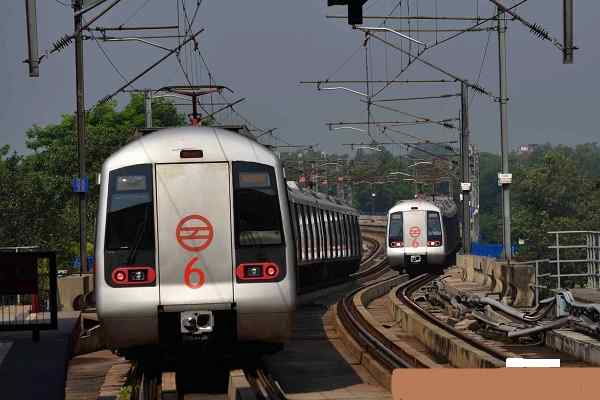 Tender issued for 68 Broad Gauge Rolling Stock Cars for Red Line Extn under Delhi Metro Phase 4
Tender issued for 68 Broad Gauge Rolling Stock Cars for Red Line Extn under Delhi Metro Phase 4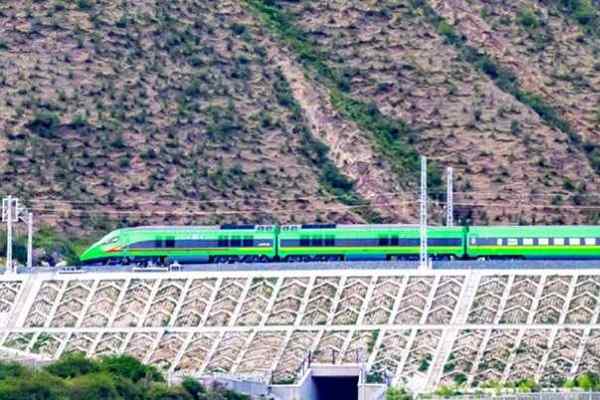 Saudi Arabia and Qatar approve 785 km High-Speed Rail Link between Riyadh and Doha
Saudi Arabia and Qatar approve 785 km High-Speed Rail Link between Riyadh and Doha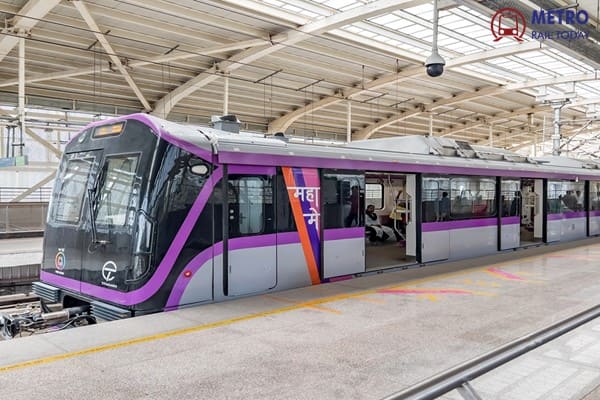 Colossus Infra awarded E&M Contract for Pune Metro’s PCMC–Nigdi Corridor
Colossus Infra awarded E&M Contract for Pune Metro’s PCMC–Nigdi Corridor Riyadh Metro invites Bids for Expo 2030 Station on Yellow Line
Riyadh Metro invites Bids for Expo 2030 Station on Yellow Line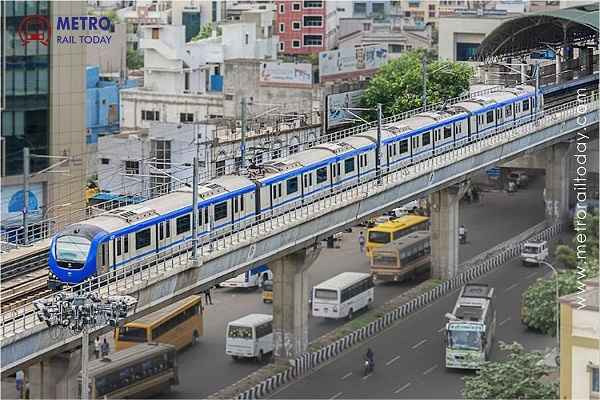 Knorr-Bremse to invest €200 million to develop Technology and AI Hub in Chennai, India
Knorr-Bremse to invest €200 million to develop Technology and AI Hub in Chennai, India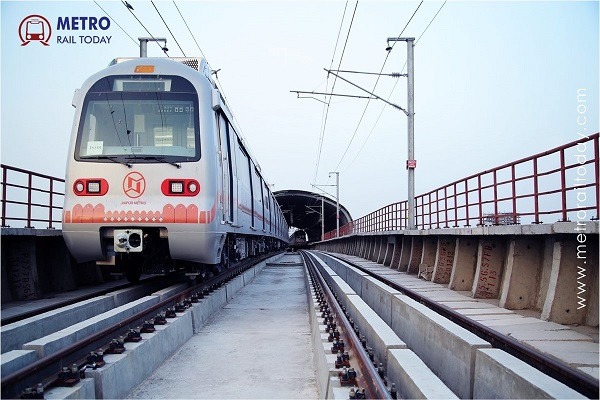 Ceigall - SAM India JV awarded ₹918 crore Civil Contract for Jaipur Metro Phase 2 Project
Ceigall - SAM India JV awarded ₹918 crore Civil Contract for Jaipur Metro Phase 2 Project How Do Contractors Make Sure There’s No Flooding While Building Subways?
How Do Contractors Make Sure There’s No Flooding While Building Subways?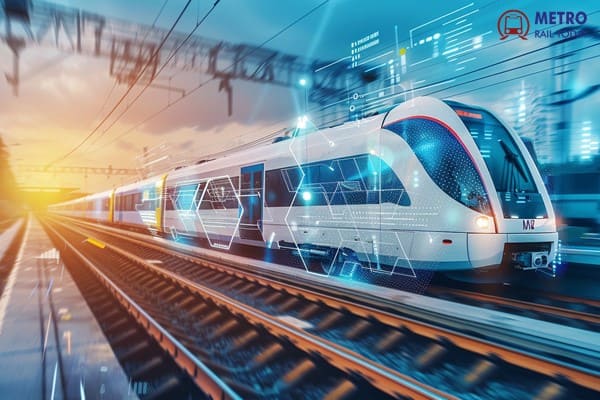 Wabtec completes acquisition of Dellner Couplers, Strengthening Global Passenger Rail Portfolio
Wabtec completes acquisition of Dellner Couplers, Strengthening Global Passenger Rail Portfolio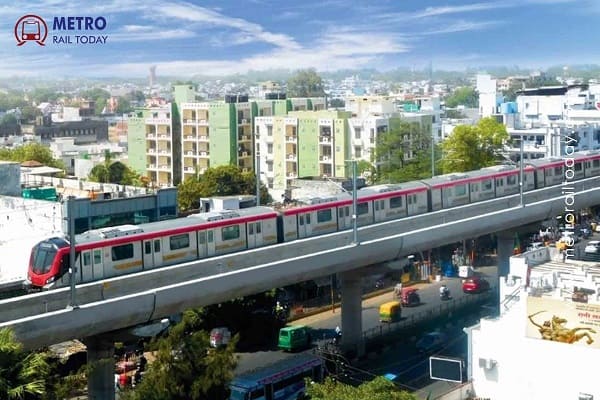 AYESA-led JV appointed Detailed Design Consultant for ₹5,801 crore Lucknow Metro Phase 1B
AYESA-led JV appointed Detailed Design Consultant for ₹5,801 crore Lucknow Metro Phase 1B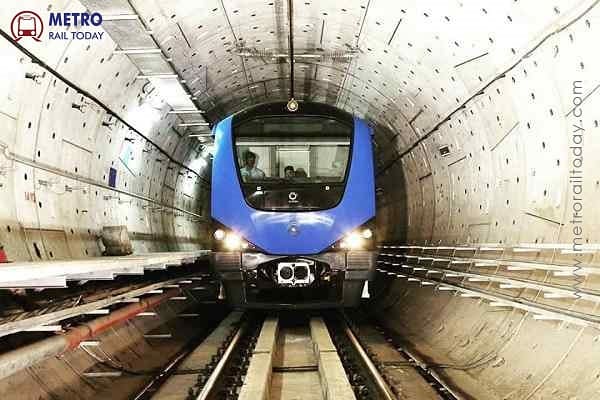 CMRL completes 8th Tunnel Breakthrough on Chennai Metro Phase 2
CMRL completes 8th Tunnel Breakthrough on Chennai Metro Phase 2
Maharashtra approves India’s First Pod Taxi connecting Thane, Navi Mumbai & Mira-Bhayandar

Mumbai, India (Metro Rail Today): India’s urban transport landscape is set for a futuristic leap as Maharashtra greenlights the country’s first-ever pod taxi network, a Personal Rapid Transit (PRT) system that will connect Thane, Navi Mumbai, and Mira-Bhayandar. Led by the Mumbai Metropolitan Region Development Authority (MMRDA) under a public-private partnership (PPP) model, the breakthrough project aims to redefine daily mobility in one of India’s fastest-growing urban corridors.
The historic approval was granted during a high-level meeting chaired by Deputy Chief Minister Eknath Shinde, marking a major milestone in Maharashtra’s push toward next-generation, sustainable transportation systems.
Officials confirmed that feasibility studies for the pod taxi system have been completed and that MMRDA is now preparing detailed corridor planning, route design and tendering strategies. Private firms will soon be invited to submit technical and financial proposals, accelerating the project toward construction.
The initiative aligns with the state’s long-term vision of adopting cutting-edge mobility solutions to address traffic congestion and support rapid urbanisation across the Mumbai Metropolitan Region (MMR).
Mrs. Mamta Shah, MD & CEO of Urban Infra Group, lauded the state government’s decision:
“The approval of India’s first pod taxi network signals a bold shift toward next-generation mobility. Integrating pod taxis with metro and bus networks will transform commuting across Thane, Navi Mumbai and Mira-Bhayandar. This is exactly the kind of innovation needed to shape future-ready, low-carbon urban transport ecosystems.”
What Makes Pod Taxis Revolutionary?
Pod taxis — or Personal Rapid Transit (PRT) — operate as automated, driverless, on-demand vehicles running on dedicated elevated tracks. Designed for high-frequency urban travel, the system offers several advantages:
-
Small electric pods carrying 3–6 passengers
-
Point-to-point, non-stop service
-
Dedicated guideways, eliminating traffic delays
-
Zero-emission and low-noise travel
-
Highly safe and automated operations
Globally, PRT systems operate in London, Abu Dhabi, South Korea, and Japan, and the Indian model will be customised to meet the high ridership demands of urban Maharashtra.
Why Thane, Navi Mumbai & Mira-Bhayandar?
These regions have emerged as major residential and commercial hubs with rapidly growing populations. Traffic bottlenecks on arterial routes have worsened in recent years, creating an urgent need for innovative mobility solutions.
The pod taxi system is expected to:
-
Reduce road congestion
-
Improve last-mile connectivity
-
Support metro corridors and bus networks
-
Promote low-carbon mobility
-
Reduce dependency on private vehicles
-
Improve regional air quality
The MMRDA has been directed to coordinate with local municipalities to identify optimal pod corridors based on traffic density and commuter patterns.
Seamless Integration With Metro & Bus Systems
A key highlight of the project is multimodal integration. The pod taxi network will connect effortlessly with:
-
Mumbai Metro Lines
-
Thane and Mira-Bhayandar transport systems
-
Navi Mumbai bus and rail networks
This will significantly reduce overall travel time and make daily commuting more efficient and predictable.
PPP Model to Drive Speed & Efficiency
Under the PPP model:
-
Private players will construct, operate and maintain the system
-
MMRDA will oversee planning, approvals and regulatory coordination
-
The model ensures faster rollout with reduced public expenditure
-
Advanced global PRT technologies can be adopted more seamlessly
What Happens Next?
With feasibility studies done, the next steps include:
-
Issuing tenders for private participation
-
Finalising routes and station locations
-
Designing elevated tracks and pod terminals
-
Beginning construction on priority stretches
Once operational, the pod taxi system will:
-
Cut travel time significantly
-
Offer comfortable, air-conditioned, automated mobility
-
Reduce traffic pressure on densely populated corridors
-
Support Maharashtra’s sustainable and smart mobility goals




